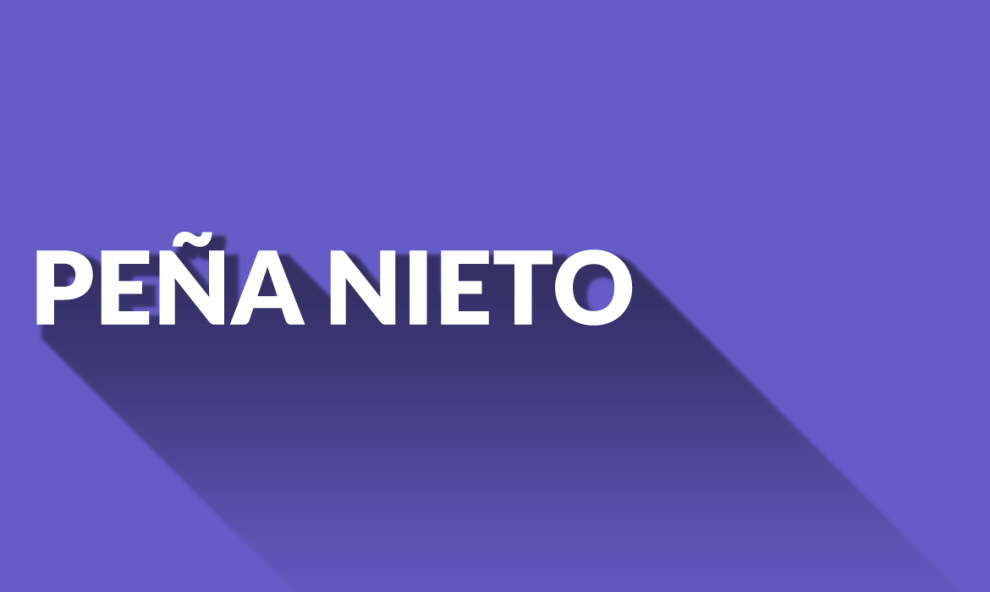Great transformations do not take place by chance. Behind each country that has achieved moving on to development or, at least, breaking loose from the moorings of underdevelopment, there is always a mixture of management, strategy and leadership. Without this combination, post-Franco Spain could never have become a developed nation. Likewise, without the mental clarity and political skill of Deng Xiaoping, China would continue being a poor nation without the transcendence that it has acquired today. Mexico has for decades been experiencing changes and, although there are notable advances, what’s evident is that it has not achieved a transformation across the board. Can Peña change this trend?
What is paradoxical about today’s Mexico is the attachment to the past and the rejection of understanding the forces that move the world. Paradoxical because, despite that the instincts of the majority of our politicians –of all the parties- are strongly tethered to the rearview mirror, many of their decisions are in sync with the reality of a changing world. The country has been catching up with the planet, sometimes reluctantly, but not in their spirit or vision.
If one observes the future, it is easy to find obstacles, many seemingly insurmountable. However, if one looks backward, what impacts is the enormity of the change that Mexico has undergone. The physical change of the country is enormous, but also its institutional framework and the competiveness of its export-led economy. Of course there’s much to do, but for this it is important to understand the two transitions that the country has experienced, each of these following its own dynamic, incongruence that lies at the heart of the poor performance of the economy as well as the persistent level of political conflict.
The economic transition began in the eighties with a transformational project that was thwarted because it proved to be conceived as a crude attempt at political survival rather than a true development strategy. Raising the growth rate was pursued but the ulterior motive was, simply and thoroughly, to preserve the PRIist order. The economic transition permitted moving from a closed and protected economy to an open economic regime, from a system of subsidies and controls to one in closer to the market. Great project but born stubby, thus the result. The economy began to grow, until it stagnated: it is not possible to undertake a transformation when the intrinsic conditions for it have not been created.
The political transition obeyed a reactive logic: there never was a project. Instead of postulating a transformative scheme, however modest, the transition was the product of a set of partial changes that responded to critical situations or uncontainable pressures, particularly in the electoral ambit, that breathed oxygen into the political system and, in the last instance, made possible the defeat of the PRI in 2000. In this manner, Mexico went from a one-party, semi-authoritarian system to an incipient democracy and from a network of centralized controls to a fragmented political system. Although strong and lasting institutions were constructed, particularly the electoral realm and the Supreme Court, the transition never joined the political forces together in a common objective, which thwarted the construction of a consensus with respect to the result. The recent post electoral crises are not the product of chance.
The nodal point is that there has not been a vision of the future. The changes that have been carried out have been important but partial, yielding a mediocre product. Despite this, in recent years an aggregate of “assets” has been built that, well exploited, could lead to a transformation of the country: political diversity, infrastructure, the North American Free Trade Agreement as a guarantee of investments, the middle class and some key institutions. What has been achieved is no small thing, but there has also not been the political dexterity to convert these advances into a transformational process.
The great deficit that the country endures lies fundamentally on the governmental side. Mexico has an export industry that competes successfully with the best in the world, but a system of government that could not compete even with the poorest of African countries. The regulatory system is medieval and the Judicial Power has not changed practically since the colonial era. Although there are of course many exceptions, the country aches for a modern and functional government.
It is within this context –of contrasts but with enormous opportunities- that Enrique Peña steps into the presidency. His challenge will be to dislodge the country from its stagnation, but he has an extraordinarily favorable scenario for achieving this. At the same time, he confronts powerful enemies who are against any change, particularly within his own party, but also in the others. His great challenge will consist of elaborating a project that transcends the notion of an effective government, which offers little promise. His risk will be the temptation to centralize power. But his true opportunity, and the only one that would let him embark on a real transformation, would be that of institutionalizing power. Paradoxical that it is a PRI government which has this opportunity to change the country, once and for all.




Comments